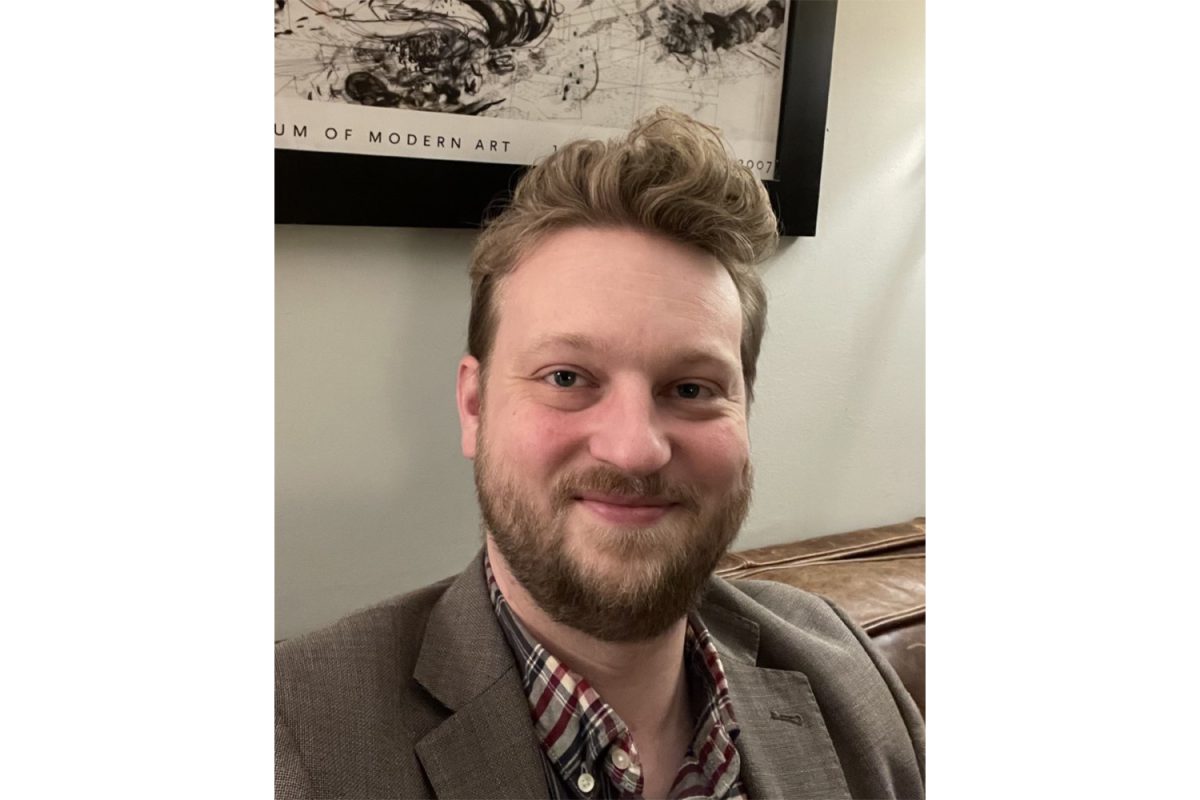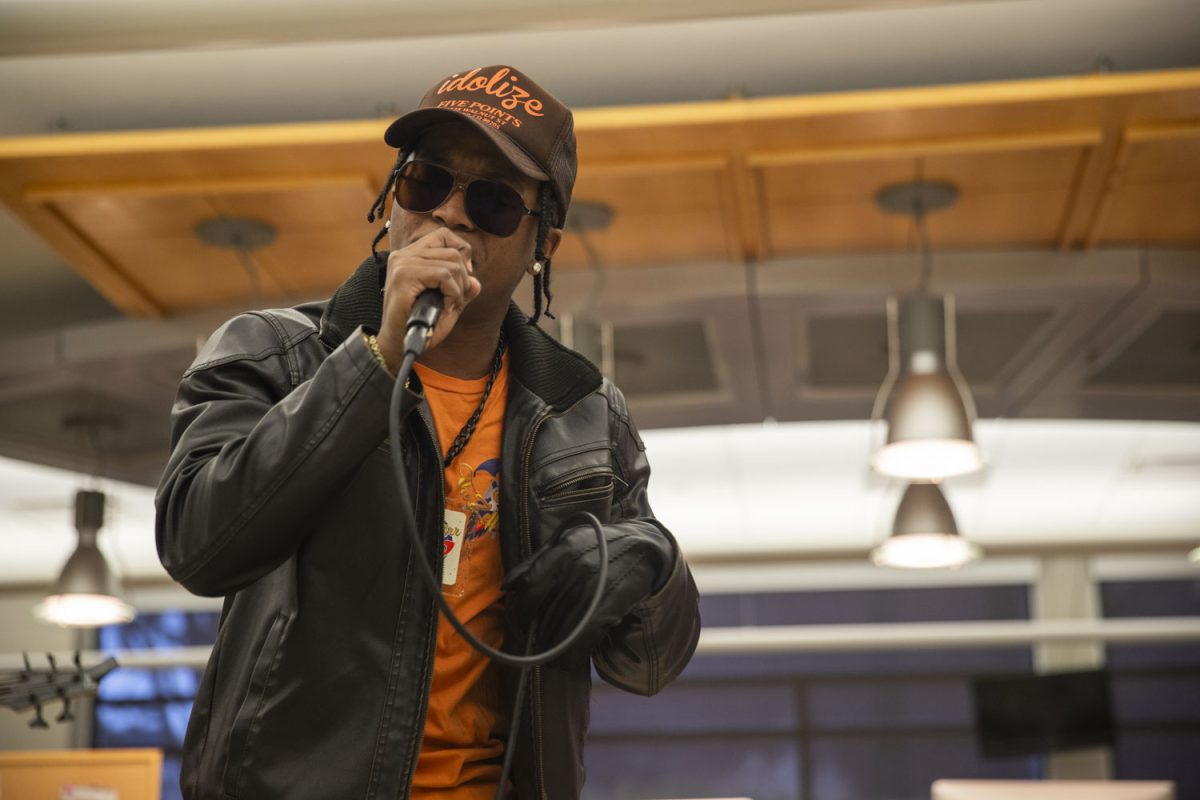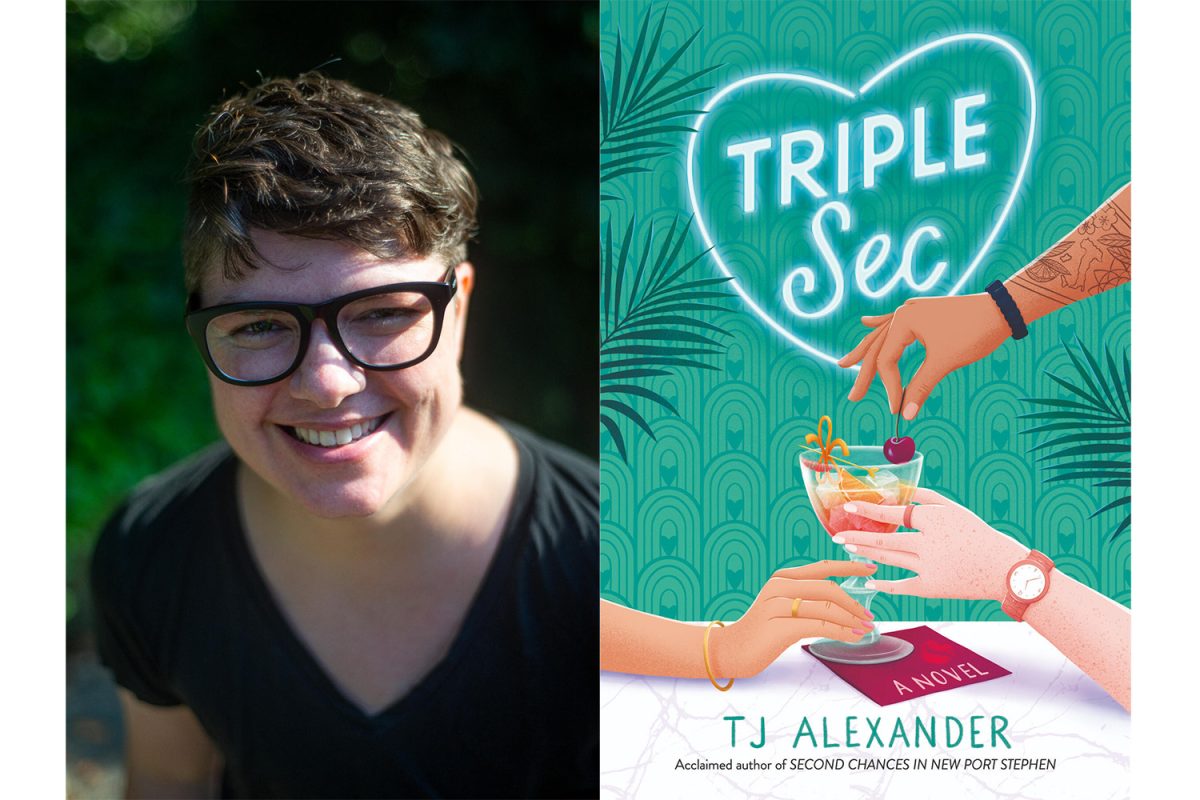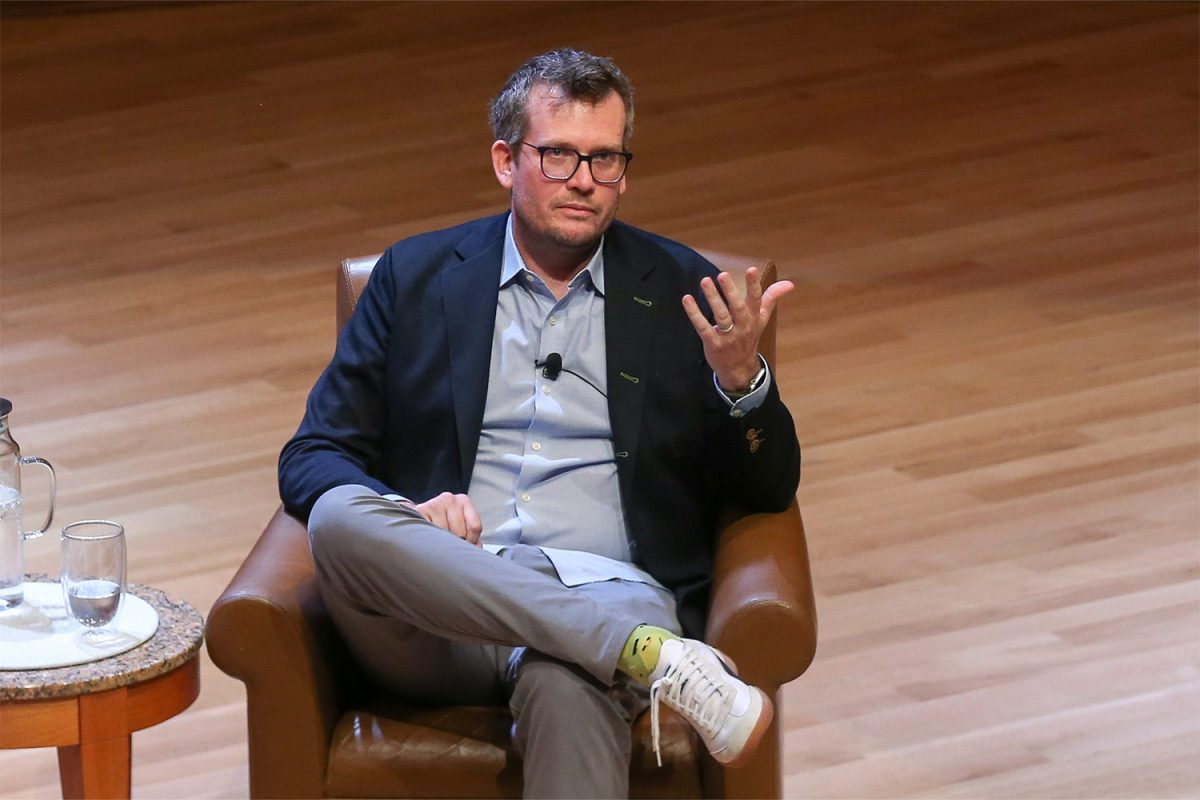More than six centuries since the publication of one of the earliest canon frame narratives, Geoffrey Chaucer’s “The Canterbury Tales” remains an ever-present topic of discussion in contemporary literary circles — let alone studied meticulously at and beyond a collegiate level.
Taylor Cowdery, the director of medieval and early modern studies at the University of North Carolina – Chapel Hill, claims that it’s not so much what these authors wrote, but rather how applicable these stories are to present-day society.
An associate professor of English at UNC and an author himself, Cowdery visited the University of Iowa’s English and Philosophy Building on Nov. 10 to deliver a lecture about “Middlebrow Style and Social Identity in ‘The Canterbury Tales.’”
This interview has been edited for length and clarity.
The Daily Iowan: Your first book, “Matter and Making in Early English Poetry: Literary Production from Chaucer to Sidney,” discusses the concept of “making” in early English poetry. How does this concept help readers understand the medieval mindset surrounding poetry and what it means to be a contemporary poet?
Taylor Cowdery: When we think about what it means to write now, we’re working with a way of thinking about poetry that starts with romantic poets. We think about things like imagination, creativity, as though a poem just comes fully formed and pops right out of your head and onto the page. But one of the interesting things about medieval poetry is it foregrounds the craft elements of writing. They would start with one set of materials — whether it’s a text that already existed or a story that they were interested in reworking — and then they transform it, bringing it into something new. It’s easy to think about writing as a nebulous kind of labor that is completely different from plowing a field or whatever. But that’s, of course, one of the most common metaphors that medieval poets use to describe what it’s like to write. It’s like plowing a field, winnowing chaff from wheat, shaping a piece of clay into a pot. They weren’t exactly creating from nothing, and neither are we.
Could you share insights on some of the major literary differences between descriptions of social class/rank in medieval society versus how we write about class/rank now? Alternatively, what are some of the glaring similarities?
The modern middle class is such a weird category. When you think about what it means to be middle class — and Americans are especially guilty of this — both people who are extremely well-to-do in relative terms and people who are maybe a notch above unskilled labor will claim middle class. That’s not new, though. There’s a great historical debate about whether you can even use the term “middle class” to describe people in the 14th and 15th centuries in England in the first place. The term is a cipher; you can bend it and shape it and shoehorn it, so it describes a bunch of different kinds of people. In most places, medieval craftspeople were organized into guilds, an early form of trade unions. There’s a lot they can teach us about contemporary labor culture in the way unions have evolved to work in the present day. In the 15th century, people would complain about guilds having too much power, that they were stifling competition and were not good for consumers. If you go back and read your mid-20th-century trade union history, those complaints sound awfully familiar.
You argue medieval poets viewed literary creation as a form of “remaking.” How might this view alter our modern understanding of creativity and the originality of ideas?
Right now, everyone is thinking about artificial intelligence. Some of the most interesting work being done in the scholarly field foregrounds the question of what it means to have originality and criteria in literary production and whether that’s important. If AI can produce a poem that sounds good but is really just piecing together the different texts that it has been taught — which is to say, plagiarism — does that really matter? The funny thing is that in medieval poetry, there’s always going to be a strong component of originality that is part of their work because they had to copy by hand. A lot of the time, the source work was in a different language, or it was a prose text. So for poets, even if they were being as faithful as they could to their materials, they were still doing something quite original just because they had to turn it into something new. I guess what this poetry can teach us is that, at the very least, it’s not as new a dilemma as we imagine it to be. The debate is very old, and the question of how much originality matters is very old, but the difference is that it was always humans doing it. Nobody thinks of AI as being human. At least not yet.
RELATED: Ask the Author | John J. Waters
To put it bluntly, why should we still care about these dead, white, mostly male medieval authors?
There are two ways to answer that question that I often gravitate toward: One is that, if you’re committed to inclusive politics and actively trying to change the world in a progressive way, it’s very important to know your enemy. A lot of these ideas that are associated with these authors who are, to be honest, mostly pretty mild.
I teach a course on the history of gender and sexuality, and we read some pretty harrowing stuff. Aristotle did not think nice things about women, but if you try to understand their position about how, for example, the reproductive system works, it allows you to recognize when that position reappears in disguise in the present. By studying literature of the past, you can learn to recognize history when it reappears. The other answer is that I find early poetry to be compelling and beautiful because it is so different from what we intuitively care about. In many ways, it feels so hard, unapproachable, and distant, but then there are these moments of familiarity where you recognize something that reads as contemporary. Those moments feel so powerful and striking that even 600 years later, and though the language is not timeless, we still say the same things.












